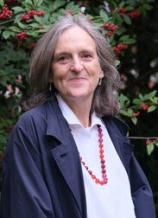The Past
Review
The Past
Quiet, plotless novels are the wallflowers of contemporary fiction. The “Why this day above all others” ethos of modern writing programs, at least in the U.S., has led to a literary landscape full of attention-grabbing openings and constant action, and not just in commercial fiction. There’s nothing wrong with a gripping read, but contemplative novels that gradually build quiet tension have their place, too. The English author Tessa Hadley has been producing these novels for years. She’s a master of the small, telling insight that adds drama to tales of ordinary lives. And her new work of fiction, THE PAST, is one of the best in her career.
Hadley has divided the book into three sections. The first and third are set in the present day. The middle takes place in the same venue but in 1968. The venue is a family home, a two-story white cube with French windows and a veranda and garden all around, in the small English town of Kington, just east of the Welsh border. The house, adjacent to a rectory, belonged to Grantham Fellowes, the minister at the rectory and a would-be poet, and his wife, Sophy. They have since died, as has Jill, their only child. Now, their four grandchildren --- three sisters and a brother, all middle-aged --- meet at the house for a three-week holiday. The main reason they have convened is to enjoy the house together one last time before deciding whether or not to sell it. But Hadley’s greater purpose is to explore the lingering tensions among her large cast of characters.
"'[T]his...excellent novel shines whenever Hadley gives us small details that define each character’s personality and his or her relations with the others in the party."
One of the many pleasures of this novel is that, except for the brother, all four siblings lead relatively commonplace lives. Alice is a former actress, a dreamy sort who is likely to forget her keys and who, in complete sincerity, asks “Was I tactless?” when she reads aloud one of her brother’s personal letters. Accompanying her to Kington is Kasim, the teenage son of Dani, a former boyfriend. Kasim is a brooding, cigarette-smoking economics major, a competitive type who will flip over a Scrabble board when he’s told he can’t use “Elvis.”
The brother, Roland, drives a Jaguar, dresses in white suits, and writes popularizing books about philosophy and film. He is the celebrity of the clan. He is newly married and arrives with his third wife, Pilar, an Argentinian lawyer whom the other siblings haven’t met. Pilar intimidates with her “concentrated, liquid glances” and her apparent disdain for the sisters’ “dusty old hopeful leftism.” With them is 16-year-old Molly, Roland’s daughter from his first marriage, whom Kasim can’t help watching on their first morning together as she eats her muesli while wearing jeans and a cropped T-shirt.
The other two siblings are Harriet, a former campus radical who now advises asylum seekers, and Fran, a mathematics teacher at a comprehensive school who arrives with her two children --- nine-year-old Ivy and six-year-old Arthur --- but without Jeff, her musician husband. The children get into typical mischief, but also the not-so-typical: their adventures include frequent visits to a ruined cottage, in which they find adult magazines and the remains of Mitzi, a neighbor’s red setter.
Except for the middle section, which chronicles Jill Fellowes’ return to Kington after the apparent dissolution of her marriage, Hadley focuses on the everyday activities of this clan --- they swim, argue about politics, worry about their wardrobe --- and their more pressing problems, from Roland’s concern over Molly’s budding maturity to another character’s confusion over her sexuality.
THE PAST has its imperfections. Fran is not as fully realized as her siblings or Pilar. And the final 50 pages take an unfortunate turn toward melodrama, as if Hadley felt a need to tack on attention-grabbing plot elements. But this otherwise excellent novel shines whenever Hadley gives us small details that define each character’s personality and his or her relations with the others in the party.
There are many beautiful moments: Alice “carefully, tenderly” applying concealer to Harriet’s to make her “look prettier;” Pilar’s “preoccupied and serious” manner when she combs out her wet hair after a swim; the grandparents’ unspoken habit of turning their alarm clock faces away from them when they read in bed so that they don’t know how much time has passed. These details set THE PAST apart from other family novels. A quarter of the way into the book, the author writes, “Wherever Alice settled, she had this gift of applying little touches to make the place distinctive.” The same can be said of Tessa Hadley.
Reviewed by Michael Magras on January 15, 2016
The Past
- Publication Date: September 20, 2016
- Genres: Fiction
- Paperback: 336 pages
- Publisher: Harper Perennial
- ISBN-10: 0062270427
- ISBN-13: 9780062270429





